2024 Could Have Some Nice Surprises
Recent polls carry some tantalizing results that we should explore without necessarily hanging our hats on them.
Did you catch the latest Bloomberg / Morning Consult poll? I’m sure if Trump saw it, they’d require extra janitorial services in the Mar-a-Lago dining room.
I know, I know. It’s just one poll, and we have been lulled into false hope and complacency before. We won’t let that happen this year, right?
I’ll say it again. Polls can’t tell us who will win, but they can tell us what direction things are headed and who has momentum. And a number of recent polls spell hope for Democrats.
Today I want to talk about the state of the presidential race and some key Senate races through the lens of some recent polling. Many of these feel like surprises to the upside, so I want to delve into why some are indeed unexpected, while some aren’t really, at least to me.
This information, especially with respect to Senate races, may inform where to put our money and energy in these final six weeks. This is especially true given that the last few undecided voters will soon begin to make up their minds and break one way or the other.
Georgia on my mind
It wasn’t just the national Morning Consult numbers that looked strong for Harris. There was also a Fox News poll (which despite the branding is considered a top and unbiased pollster) showing Harris leading Trump in Georgia by three points. Remember, if Harris wins Georgia, it’s pretty much over.
Behind those numbers are some real trouble spots for Trump. Chief among them? His advantage on who is better trusted to handle the economy has been cut in half, and he now leads Harris in Georgia on that question by just four points. Meanwhile, she trounces him on the question of abortion by 18 points.
On nearly every other issue of leadership, Harris beats Trump in the Georgia poll.
Another thing that has got to worry the Trump campaign is party loyalty. As Fox reported, “By a 4-percentage point margin, more Democrats back Harris than Republicans back Trump. One in five non-MAGA Republicans supports Harris.”
Read that last sentence again. Hello, Never Trumpers and Haley voters!
Could this poll be an outlier? It’s technically not. Many other high quality pollsters now put the race in Georgia at even to slightly favoring Harris. While this doesn’t mean she will win the state (we should never assume that when it’s this close), it does mean that her campaign should continue to put Trump on the defensive there and charge toward the finish line full out.
(And yes, if you’re worried about Georgia election shenanigans, I will be addressing that question specifically in my piece over at The Big Picture substack next Tuesday. Be sure you’re separately subscribed to that newsletter—it’s free but we do love our paid supporters!—in order to receive it in your inbox that day.)
Registered versus likely
There’s a broader reason that Harris is looking stronger in the polling that comes as no surprise to me but that could be news to readers here. That has to do with the difference between registered and likely voters.
When we see voter turnout numbers of, say, 66 percent—a very high mark we hit in 2020—that still means that around a third of voters who were registered to vote did not actually turn in a ballot. That means that it’s far more useful to poll people who are likely to vote than it is to poll those who are merely registered.
Let me review an example. Earlier this week, I wrote about the Harvard youth survey, and it showed a stark, 9-point difference in support for Harris between young adult voters who were likely to vote versus those who are simply registered:
Many states have automatic voter registration, for example, when you apply for a driver’s license. While this is great, it does mean that many more people become registered than actually intend to vote.
Pollsters define “likely voters” in different ways, but the through line is clear: The more likely a person is to vote—for example, they have voted in the last midterm and the last general election—the more likely they are to favor Harris over Trump. In fact, that was the case even when Biden was at the top of the ticket: Trump was favored with lower propensity voters while Biden won the more likely voters, which often meant the polls were skewed and would only come into clearer focus close to Election Day.
The New York Times conducted a survey of polls to see how many of them were switching to a pool of “likely voters” versus registered. The results are quite interesting: In August and September, nearly three-fourths of election polls had results from “likely voters,” compared to less than half to less than a quarter while Biden was running.
With more pollsters turning to likely voters, it’s not surprising that Harris’s numbers might look better. But this may not tell the whole story. In some polling, particularly the NYT surveys, Trump holds his own against Harris among likely voters, and even leads with this group in states like North Carolina.
But the NYT / Siena poll has consistently come in weaker for Harris than other national polls, perhaps because it uses a different set of assumptions about the make-up of the general electorate. The Times could be right, but that would basically mean all the other polls’ assumptions are wrong.
Two Senate race surprises
There are some genuinely unexpected developments in hotly contested Senate races around the country, all of which so far benefit the Democrats. I’ve written earlier about why I think Rep. Debbie Mucarsel-Powell (D-FL) has a shot in Florida, in part because of the abortion rights amendment on the ballot there.
Today I want to take a look at the race in the Lone Star State. Rep. Colin Allred (D-TX) recently posted his first ever polling lead against a fairly unpopular Sen. Ted Cruz. The Morning Consult poll, which has Allred up by one over Cruz in Texas, gave his campaign a much needed lift and high visibility.
Just this week, the Times ran a story about the shifting grounds in Texas that made the race one of “political survival” for Cruz.
Allred’s numbers appear to have caught the attention of the national Democratic apparatus, which is now shifting millions of dollars to help Allred in Texas and Debbie Mucarsel-Powell in Florida. (If you’d like to chip in, here’s a link!)
Before we start booking tickets to Cancun for Ted, most recent polling shows a dead heat with a slight advantage or between 2-4 points for Cruz. But Allred may be able to make up some ground. There are many voters who claim they still need to learn more about Allred, while nearly all of them know whether they support Cruz or not.
If Allred can pull off a come-from-behind win and do what Beto O’Rourke came very close to doing in 2018 against Cruz, that could mean Democrats hold on to the Senate, against nearly every prediction. Here is where things could stand, with Democrats looking at 50 seats if either Jon Tester or Colin Allred prevail.
Mitch McConnell really doesn’t like the idea of a Vice President Tim Walz casting tie breaking votes in the Senate like Harris did for four years, so expect the GOP to counter Democratic support for Allred with money and resources for Cruz to shore him up.
Wait, Nebraska could be in play?
Earlier this week I also wrote about another state’s electoral politics that could carry national implications. Now it seems that what happens in Nebraska could impact not just the Electoral College count but also the balance of power in the Senate.
That’s because there’s a wild card race there that admittedly few, myself included, have paid much attention to. Independent candidate Dan Osborn, who is supported by the Democrats, has pulled ahead of the GOP incumbent, Deb Fischer, 45 to 44 percent, with 11 percent undecided, according to a poll by Suffolk / USA.
Granted, that was a poll commissioned internally by the Osborn campaign. But the same poll by Suffolk / USA a month ago, conducted publicly, had shown a similar one point spread, with 39 to 38 in favor of Fischer and 23 percent undecided. Notably, it showed Trump walloping Harris by 17 points, lending credence to the idea that Osborn could win in a state that Harris is bound to lose.
The Suffolk polls in Nebraska aren’t much to go on. And there simply isn’t much by way of other polling to say whether this is accurate or just way out there. Nebraska has always been a fairly safe Trump state, but it also has a bit of an independent streak that could favor Osborn. And let’s just say it: A Senate seat flip in Nebraska could cancel out the expected flip for the GOP in West Virginia, making it very much harder for the GOP to take control of the chamber next year. (If you’d like to contribute to Dan Osborn’s campaign, here’s a link!)
Let me be clear. I don’t want to get hopes up too high here. The Senate map has been one of the worst things Democrats have had to contend with this election cycle. Democrats are defending so many seats, while there are few true opportunities to take seats from Republicans. It would take an extraordinary shift for Allred or Osborn to pull out a win against the incumbents in their respective states.
But in a year filled with surprises, and with Democrats currently having the momentum, we simply cannot rule out that one or more upsets could happen. In any event, the polls suggest that these will be far closer Senate contests than the GOP ever expected in the red states of Texas and Nebraska—which in turn means they will have to start playing defense in some Senate races.
And that is a very welcome shift.




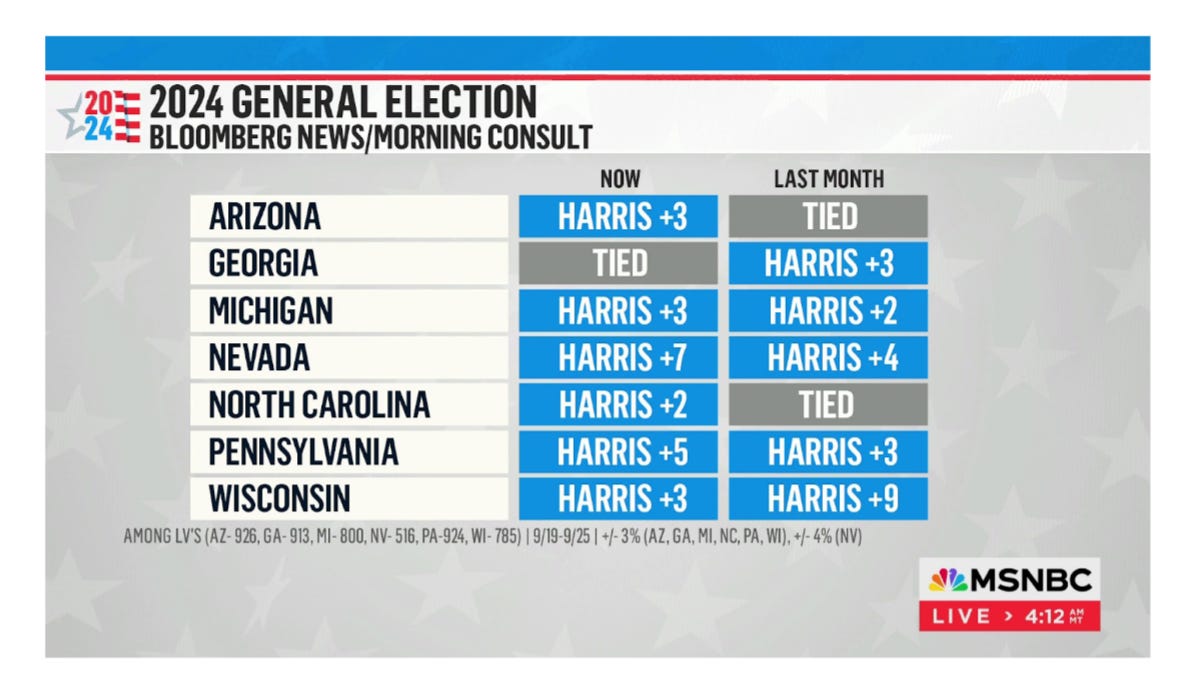
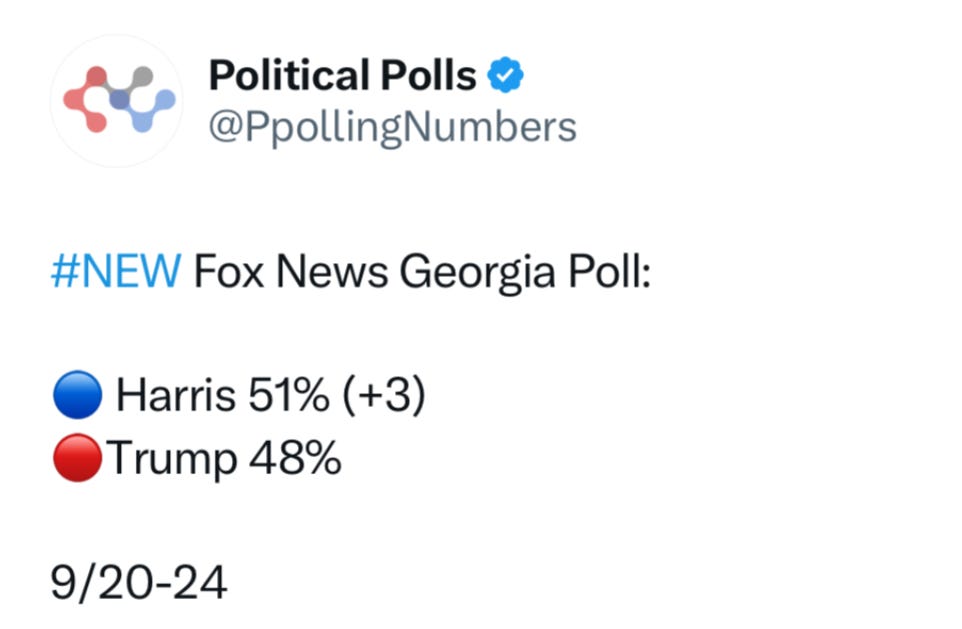
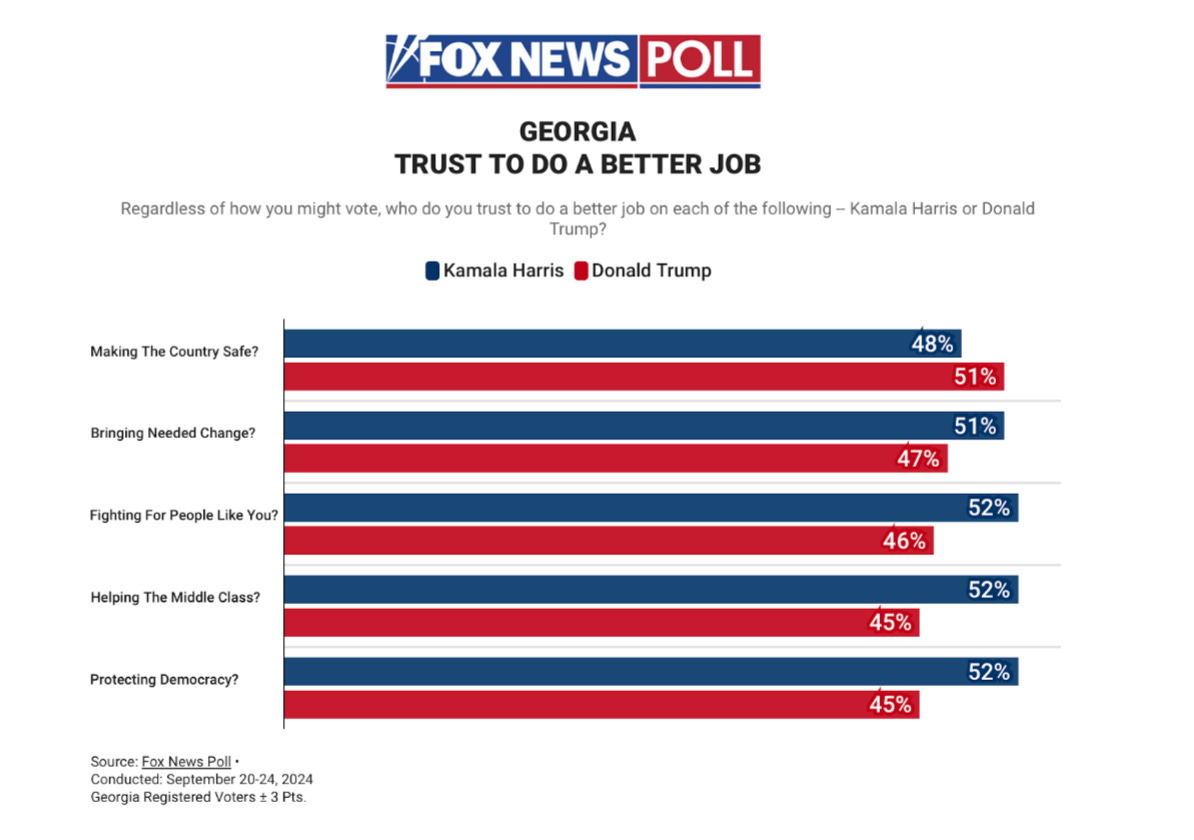
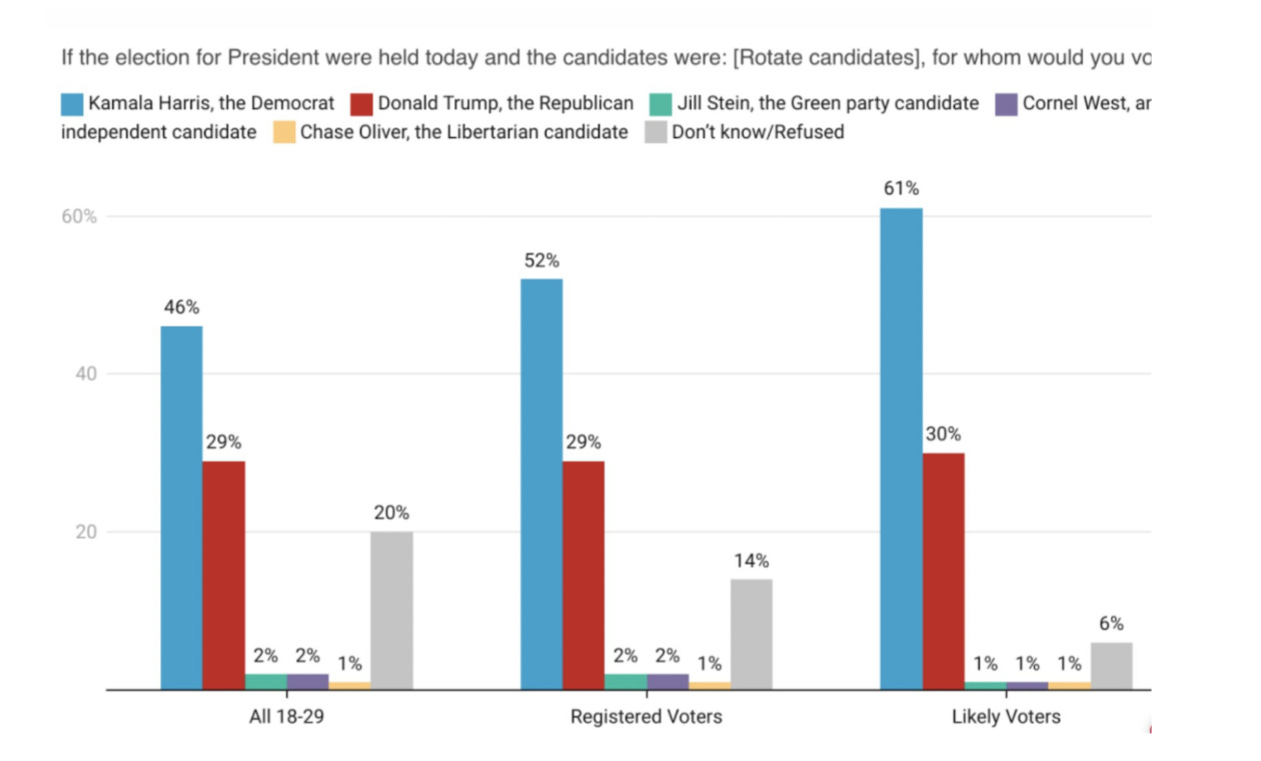
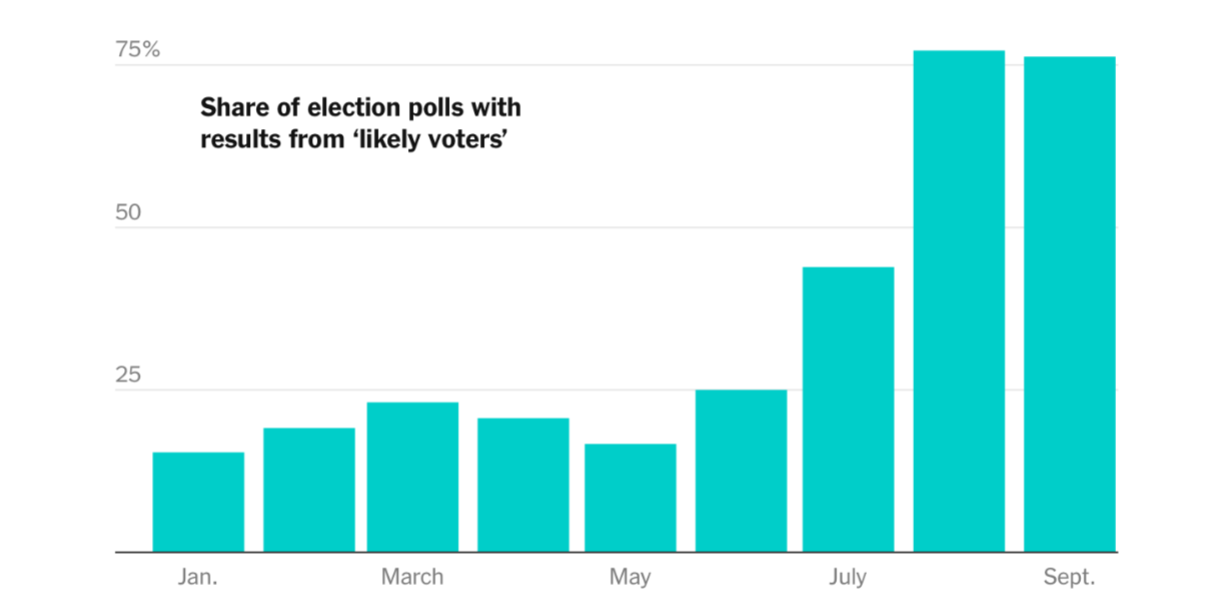
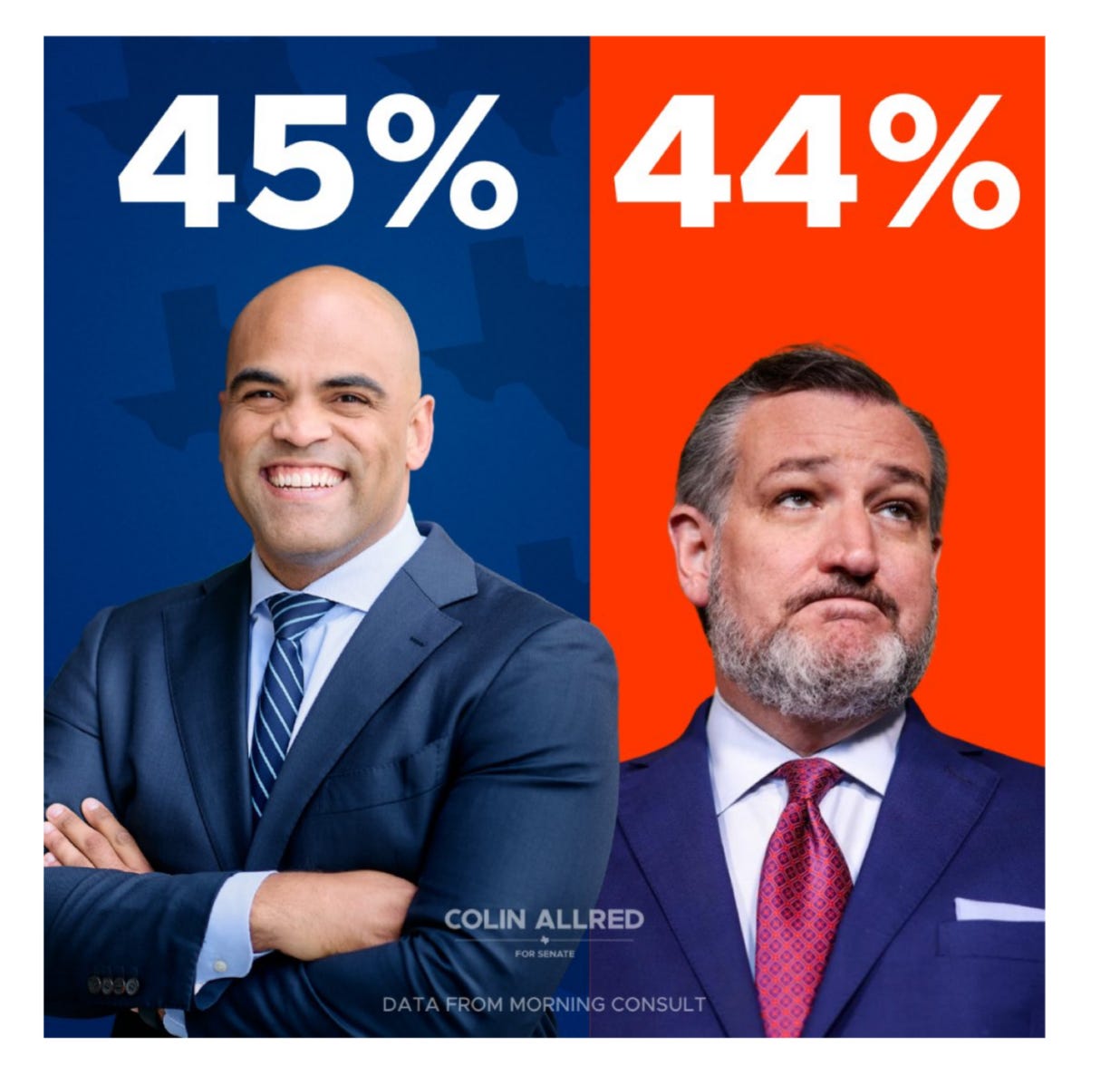

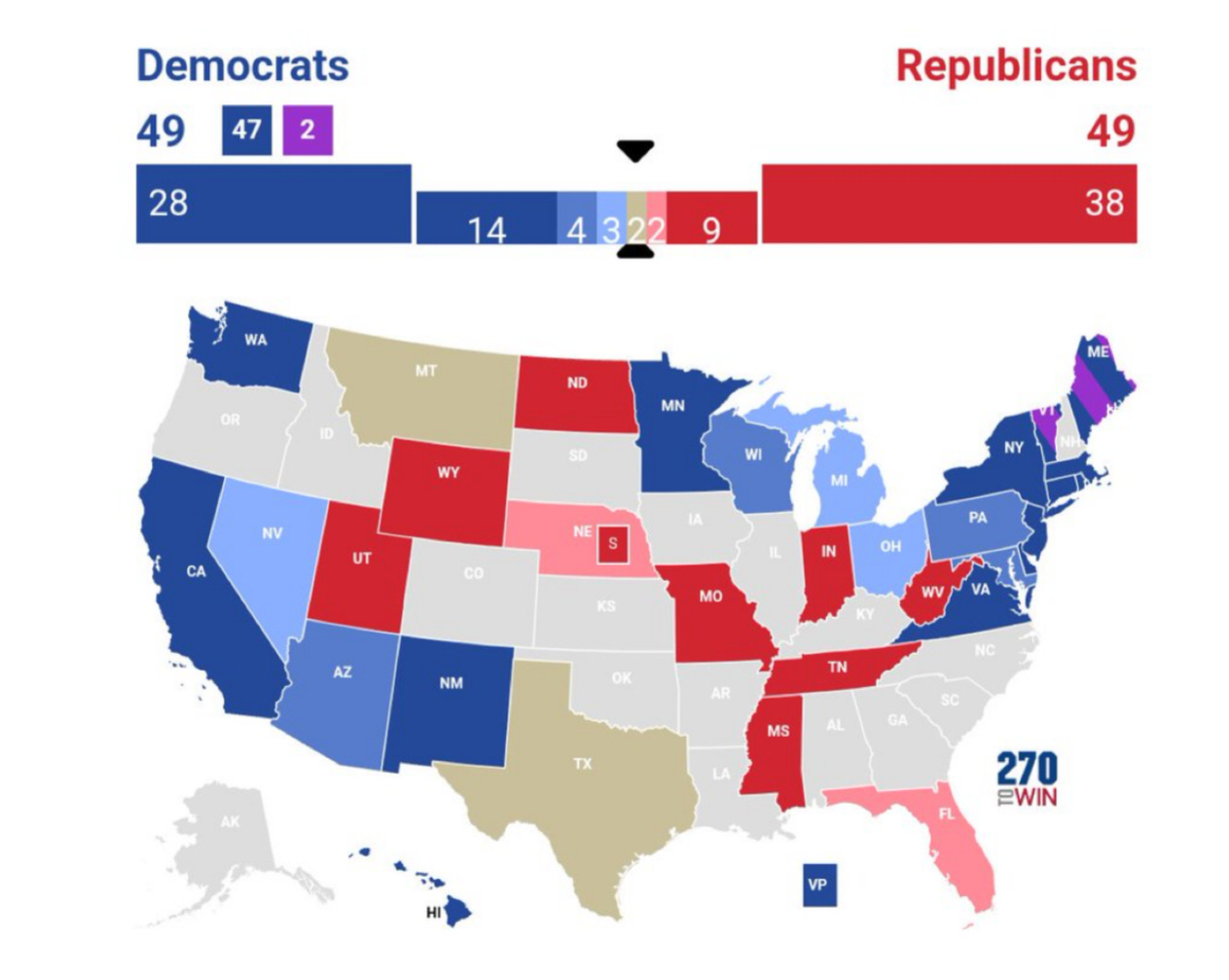
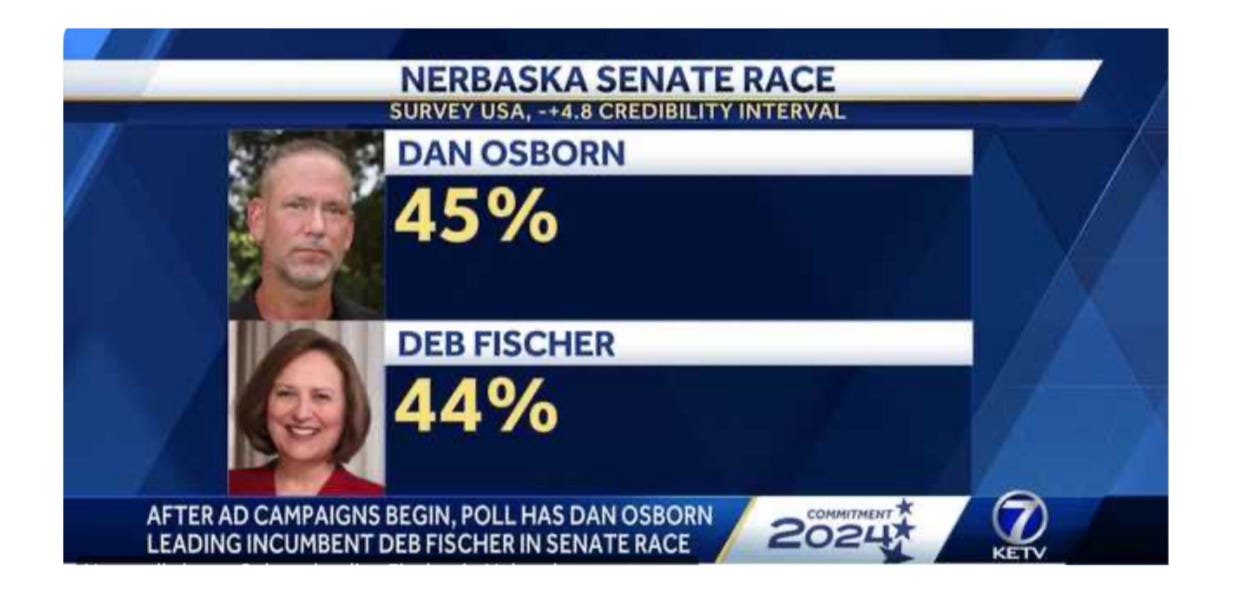
This has been edited to correct for the NE Senate candidate’s name (Osborn not Bishop).
Yeah, I just vented to the reporter from USA Today for her reporting that the Suffolk University poll shows trump up +6 in Arizona. I looked at the crosstabs and they oversampled republicans by 4%, and conservatives more than liberals 42% to 24%. The reports says this is "trouble for Harris!" I think it's really trouble for the news media.